How can you stay in ketosis despite alcohol? Here is your ultimate guide to alcohol during a ketogenic diet, including a list of alcoholic beverages without carbohydrates and some mixers that work best with keto.
New Year’s Eve, Birthdays, Date Nights, Holidays, Weddings, and Nights Out. We run into the consumption of alcohol everywhere. Why? Because it is deeply rooted in our societies and is usually found with food or around celebrations.
But you’re probably asking if you can drink alcohol with the keto diet. Can we treat ourselves to alcoholic beverages without affecting ketosis?
The great thing about a ketogenic or low carb diet is that you can always drink a little alcohol from time to time and still lose weight or not gain from it. You just need to be informed beforehand. This article will talk about what alcoholic drinks we can drink on the keto diet and which mixers are keto-friendly, along with some helpful tips and info about alcohol in regard to the keto diet.
What Are the Best and Worst Alcoholic Drinks on a Keto Diet?
First off, alcohol is no weight loss aid. The more alcohol you drink, the slower the weight loss takes. Why? Because your body focuses on burning the alcohol away before anything else, such as fat.

There’s a large variety of alcoholic drinks and it varies on if they are keto-friendly or not. For example, wine has fewer carbohydrates than beer. Pure spirits, like whiskey and vodka, contain 0 carbs! However, some flavored spirits have lots of sugar, and therefore not ideal for the keto diet.
So, the best alcoholic drinks on a keto diet are those that contain 0 carbohydrates and 0 sugars.
The worst alcoholic drinks are obviously those high in carbs and with lots of sugar.
Let’s take a look at beer, wine, and spirits and how they fit in the keto diet.
Beer
Beer is one of the most popular drinks. Unfortunately, it’s not very keto-friendly–it contains a lot of simple, quickly digestible carbohydrates. Some beer contains up to 18g of carbs per 1 bottle (550ml)! Even low carb beer, which contains around 3g of carbs per 12 fl oz., should be consumed only rarely. Here is a short low carb beer list:
- Miller Lite
- Coors Light
- Amstel Light
- Bud Select
- Bug Light
- Michelob Ultra
- Michelob Ultra Amber
- MDG 64
- Rolling Rock Green Light
In general, the darker the beer, the higher the number of carbohydrates. Avoid stouts and lager that are darker (especially those that are red, amber, or brown).
Wine
In moderation, wine can even provide a few health benefits. These health benefits come primarily from the polyphenols, antioxidants, and resveratrol that are found in red wine and white wine.
In general, dry wines have the lowest sugar content. They are typically harvested when the grapes are not fully ripe (and therefore have less sugar) and usually do not use chaptalization (adding sugar to the fermentation process).
Red wine usually has the lowest amount of carbohydrates of all wines. If you see a wine labeled “late harvest”, these wines typically have a very high carbohydrate content and should be avoided with a ketogenic diet.
Many studies have shown that moderate red wine consumption can reduce the risk of heart disease and strokes. However, it is important to note that excessive consumption increases the risk. There are also studies that link red wine to the reduced risk of dementia, depression, and type 2 diabetes in women.
In general, white wine has a higher antioxidant content and usually has a lower hangover due to a lower concentration of congeners (by-products of the fermentation process). There are also studies that showed long-term white wine consumption that improves lung health.
Sweet dessert wines contain a lot more sugar.
Here is a quick guide to some popular wine varieties and their corresponding nutritional information in regard to the keto diet:

Spirits
Vodka, whiskey, scotch, bourbon, and other spirits contain 0 carbs!
- Whiskey (0g carbs)
- Gin (0g carbs)
- Cognac/Brandy (0g carbs)
- Rum (0g carbs)
- Scotch (0g carbs)
- Tequila (0g carbs)
- Vodka (0g carbs)
Drinking pure spirits will not affect the keto diet; ketosis would not be affected. However, you should avoid mixed drinks containing sugar as well as flavored vodkas, whiskeys, other spirits, and mixers as they may contain syrups and sugar additives, and be high in carbohydrates.
The Best Keto-Friendly Drink Mixers
If you can’t drink it pure, here are a few keto-friendly mixers. You should avoid mixed drinks containing sugar and remember to drink in moderation. Orange juice, for example, can already have about 16g of carbs in a small glass. Even with these keto-friendly mixers, you can quickly consume too many carbs. Gin and Tonic is a typical case: it has about 15 grams of carbohydrates! Better switch to vodka, soda water, and lime – which has virtually zero carbohydrates. However, an occasional mixed drink shouldn’t hurt, so, here are some more keto-friendlier mixers:
- Diet Sodas (Coke Zero, Diet Coca-Cola, Diet Sprite, Sprite Zero)
- Diet Lemonades
- Sugar-free energy drinks (Redbull, Monster)
- Water
- Tonic water
- Seltzer water
- Mineral water
- Tea
- Coffee
- Cream
Why You Should Just Do Without Alcohol
Though you can drink some types of alcohol on the keto diet guilt-free, there are plenty of reasons why alcohol still may affect you negatively in reaching your goals with the keto diet.
You get cravings and hungry for calories.
Alcohol contains empty calories. The calories you get from alcohol do not provide any nutrients. You will not fill full and your stomach may feel like a bottomless pit. In fact, drinking alcohol consumes a large number of calories.
You stop your body’s ability to burn fat as energy.
Your body treats alcohol as a toxic substance. When it gets into your bloodstream, your body starts focusing all of its energy on processing the alcohol. Everything else is paused. Including digestion. When this happens, your body stores this excess energy from sugar and carbohydrates as fat. Since your body is busy filtering alcohol out of your system, it stops using fat for energy, as is usually the case when you are in ketosis. Your body then uses the empty calories you drank as fuel. This will absolutely not help you achieve or maintain ketosis – it does the opposite. If you struggled to get ketosis quickly at the beginning of your ketogenic diet, you should drastically reduce or avoid alcohol consumption.
You get drunk faster and your hangover is worse.
It doesn’t matter whether you drink a glass of red wine or a beer with your friends after work … during a keto diet, the effect of alcohol on your body changes.
When you are in ketosis, alcohol works faster and stronger in your system than when your body ingested more carbohydrates. Your alcohol tolerance drops to almost zero when you are in ketosis.
Typically, people have a lot of glycogen stored in their bodies thanks to the high-carbohydrate diet that serves as a safe cushion for alcohol breakdown. Without this buffer, your body processes alcohol much faster and you will feel the effects sooner.
Those on the keto diet have also reported worse hangovers. While there are no definitive studies to prove why dehydration and electrolyte imbalance appear to play a role. Both dehydration and an imbalance in your electrolyte balance can occur when you drink alcohol and when you are in ketosis, it creates the perfect interplay for intense hangovers.
But can you minimize the disadvantages of consuming alcoholic beverages in a ketogenic diet?
Yes. Below are some tips to keep in mind when incorporating alcohol into your keto diet.
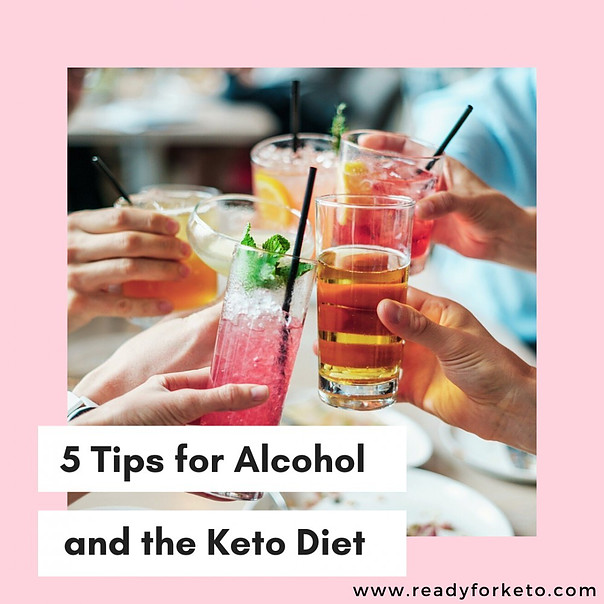
5 Tips for Alcohol and the Keto Diet
- Calories are as important as carbohydrates. Counting net carbohydrates is more critical than counting calories on a ketogenic diet, but alcohol is the exception to this rule. Alcohol contains 100 percent empty calories and you can easily drink the same number of calories that correspond to an entire meal…without even realizing that you are over your limit. Repeat this too many times and your weight can start to tip in the wrong direction. Familiarize yourself with and adhere to low-zero-alcohol types of alcohol and low-calorie options.
- Stay away from mixed drinks and cocktails. When it comes to drinking on the keto diet, choosing the right combination is crucial. While vodka has zero carbohydrates, combining it with sugary lemonade, soda, or tonic water destroys the purpose of choosing vodka because of its low carbohydrate content. The majority of mixed drinks contain (not keto-friendly) fruit juices, sugars, syrups, and lots of carbs. Opt for drinks without blends or choose spirits with seltzer or soda water and a splash of sugar-free lemon or lime. These drinks have no carbohydrates.
- Try to do without beer, as beer is a liquid grain and has a lot of carbohydrates! However, there are certain low-carb beers that can be drunk in moderation. Examples are Miller Light, Bud Light, or Michelob Ultra.
- Follow the “One Drink Max” rule. Although you can enjoy certain low-carb alcohol on a keto diet, it still depends on the amount you consume. It is difficult for your body to process alcohol and it can significantly disrupt your fat-burning potential. You don’t have your desired weight yet? Or are you struggling to achieve or maintain ketosis? Then it makes sense to avoid alcohol for two to four weeks to see if it prevents you from achieving your goals–try to practice the “One Drink Max” rule. Limit yourself to one drink per evening and one to three drinks per week. Once you’ve reached your target weight, or have been able to achieve and maintain ketosis, you can drink a little more to find out what works for you. Until then, you should avoid alcohol or practice moderation.
- Eat a keto-friendly meal before you drink. Carb-loading before a night of drinking isn’t the best option. If you eat a high-carb meal before drinking, you throw yourself out of ketosis and jeopardize how your body metabolizes alcohol. Fat and protein are your allies before drinking. Have a keto-friendly meal that is rich in healthy fats and some protein before drinking. This combination helps you slow the effects of alcohol, which means fewer metabolic processes for your system.
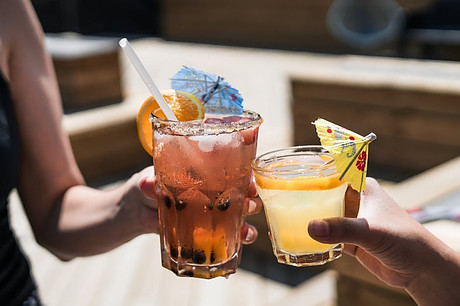
Conclusion
Unless you have to follow the ketogenic diet for medical reasons to enjoy stable health, it should not be too much of a problem to have a glass of dry wine or some whiskey now and then. Alcohol can definitely be enjoyed (moderately) and combined with the keto diet.
However, this does not mean that you get a “free ride” and can consume as much of these drinks as you like. Strictly speaking, alcohol is still a relatively dangerous poison that has no actual health benefits for the body. Once the alcohol enters the body, it is basically processed as toxic and is perceived as an acute “danger” that must be removed from the body as quickly as possible. While you have alcohol in your blood, the body stops many other processes, such as fat burning, in order to concentrate on the elimination of alcohol instead and “save” itself. Therefore, you should consider how much alcohol you really want to drink.
You should be aware that you might react differently to alcohol due to ketosis and in return, reach your alcohol limit faster. Additionally, every glass of alcoholic beverage carries the risk of wanting more – but the extent to which this applies to you and what you do with it is entirely up to you. As long as you drink slowly and responsibly, everything should be fine. And keep in mind: Not over drinking is not only good for ketosis, but also for your health.
Remember to choose a non-flavored version of spirits and to either drink it pure or mixed with a low- or no-carb drink.
I hope this post has informed you of some keto-friendly alcoholic drinks and the effects of alcohol on the keto diet. If you don’t see your favorite drink listed and since there is no standard for nutritional information and alcohol, you can try to research the nutritional information online–be sure to check the carbohydrates and sugar content!
What are your favorite alcoholic drinks to enjoy on the keto diet? Does alcohol affect you differently while in ketosis?
Thanks for reading!
Anna
www.readyforketo.com


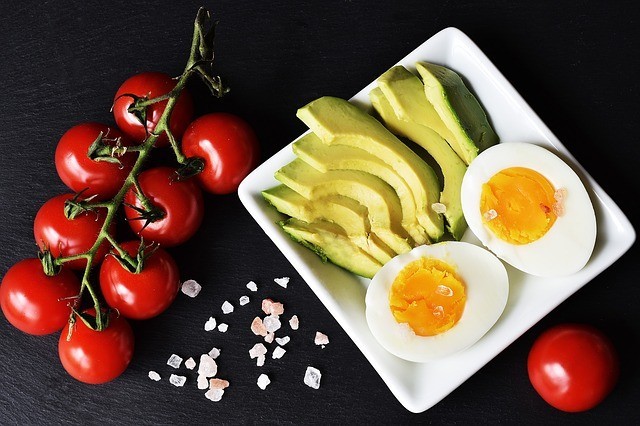
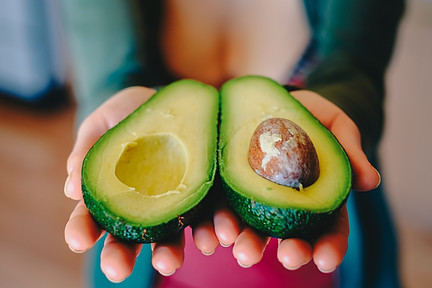
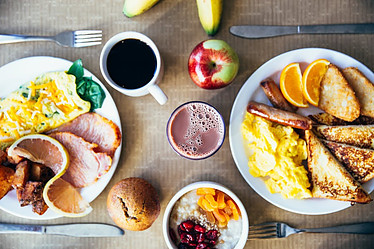

Thanks a lot for sharing with us such an amazing review about Keto Diet. The only died I tried was Cambridge diet but this Keto Diet is the first time when I hear bout it.I think it is never good to consume a lot of alcohol whether you are on a diet or not. A very good article with useful information that can help people on the keto diet.
Thanks again for this post. If you don’t mind, I will share this article on my social media account. Good luck!
Thanks for reading and sharing, Razvanllie!
Thank you for this helpful post on whether we should drink alcohol while using the Keto diet. So liquors shouldn’t be drunk because they have calories and I shouldn’t drink mixed drinks with fruit. Beer has calories the same way I used to drink it now I won’t drink it because it’s thicker.
Wow,
What an amazing job guiding the reader in search of information on the Keto dirt.
Mixing alcohol to a diet was not something I would have consider people would do.
It is a new year and some of us have taken resolution to shed a few pounds for health purpose.
I will be sharing the knowledge I acquired here within my group. I already forwarded the link and
I will make sure to come back I take notes on the other articles as well.
Thank you for your due diligence.
Hey there,
Thanks for reading and sharing! 🙂